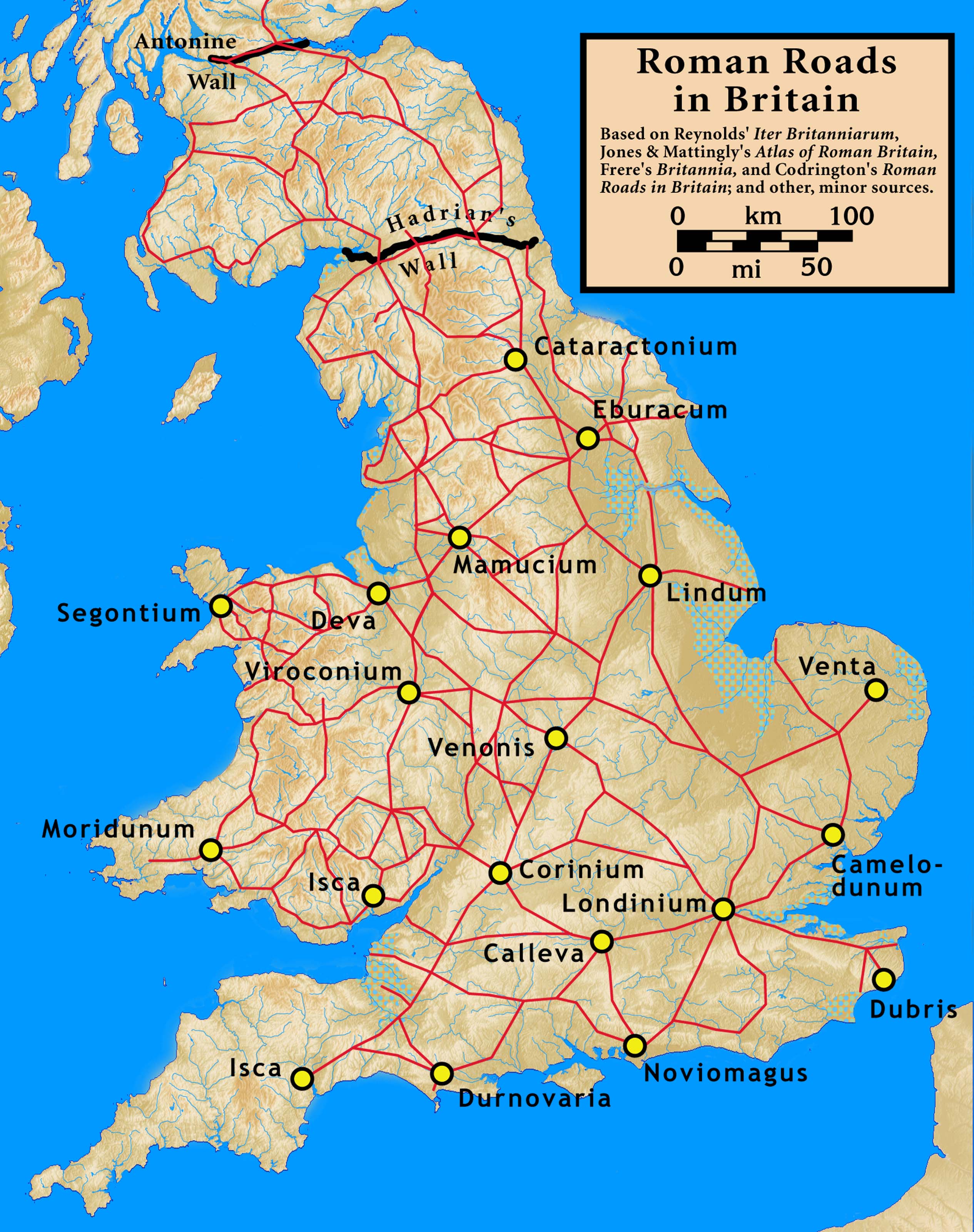The Romans did not come to Britain to assimilate with the local regional groups and their ways of life. They came to conquer, and to take the plentiful raw materials that Britain had to offer. In order to take and then maintain control of the island, the Roman army needed to be able to move troops of soldiers quickly from one place to another. They also needed to transport large volumes of supplies to support those troops, in addition to exporting raw materials from Britain to other parts of the Roman empire. To achieve these goals, the Romans needed a safe and efficient transport network. The existing muddy tracks and trails that criss-crossed the countryside were no good for their needs.
As the Romans advanced throughout Britain, they built army camps and developed towns into bustling commercial centres such as Londinium (London), and busy ports like Noviomagus (Chichester) and Eboracum (York). The roads they built connected these fortified camps, towns and ports, allowing faster transport of people and goods. By 47 CE, just four years after the beginning of their conquest of Britain, the Romans had built over 1,000 miles of roads and changed the face of Britain forever.
A Roman capital in England
By 208 CE Roman Emporer Septimus Severus marched to Eboracum (present day York) with an estimated 35,000 - 50,000 soldiers. For the next three years, Severus ruled the whole of the Roman Empire from York. This would not have been possible without an established road network.
Septimus Severus was born in Libya, Northern Africa and was likely the first Black person that many Britons would have seen. Within his huge entourage were soldiers from all over the Roman Empire, and the city of York became more multi-cultural. Spices from Africa were transported across the Empire by transport networks of road and sea and became part of the diet of local York people during this time. Archaeological digs have also unearthed memorials to fallen soldiers who originated from Syria and present-day Algeria.

